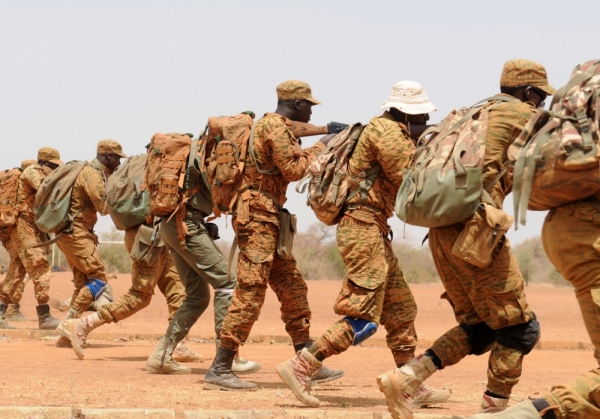Since 2016, numerous villages in the north of the country are places of violence and ill-treatment by jihadist armed groups. This climate of fear has forced more than 12,000 people to leave their villages, as estimated by the UN.
It is believed that behind these bloody episodes there is the Ansarul Islam movement, founded by Malam Ibra-him Dicko: this movement was born in the province of Soum and it has close ties with jihadists, although not a terrorist group.
It is a movement that was the manifestation of the discontent that characterized Burkina Faso in those years, especially for the people of the north of the country who saw a clear disparity between the economic situation of the villages and that of the political, religious and military class that was accused of getting rich on the shoulders of the population.
Ansarul Islam is therefore born as a product of specific local socio-political and cultural conditions that uses religion only as an identifying frame.
At the root of the crisis there is also a strong mistrust towards the state institutions and militias seen as foreign and hostile to national interests and communities. The inhabitants of the northern villages are reluctant to collaborate with those same armed forces that in the past have been the protagonists of several human rights violations.
The government launched counter-terrorism operations in 2017: state armed forces under the pretext of countering attacks and jihadist violence have in turn committed numerous crimes such as torture, prisoner abuse, unjustified detentions and killings.
Human Rights Watch and the Burkina Faso Human Rights Commission have repeatedly denounced the crimes committed by both sides (jihadist groups and security forces), calling the frequent ill-treatment of the victims to the attention of the government. populations of the villages.
In 2016 and 2017, two attacks on two major restaurants in the capital, Ouagadougou, killed 47 civilians. On March 2, 8 army members died in the attack on the French embassy.
Between 2016 and this year, the security forces have been the protagonists of numerous cases of abuse and ill-treatment, as witnessed by about 70 people. Many of them, coming from the cities of Djibo, Bourou and Nassoumbou have told of many bodies that lay along the edges of the streets, those same people who had been in the custody of the government security forces shortly before.
Among the victims of these violations by state forces there is anyone who is suspected, even if only minimally, to have contacts or collaborate with the jihadist groups.
What often hinders the course of justice for the punishment of those responsible is the complexity of the cases themselves as affirmed by the judicial unit of Ouagadougou specialized against crime and terrorism.
Human Rights Watch and the Burkinabé Human Rights Commission therefore urgently needed the Burkina Faso government to step up its actions to control these violations, which are carried out by the state armed forces themselves, thus continue the fight against corruption.
Last but not least, the Burkina Faso Human Rights Commission mentions that if we want to stem the crisis that has been gripping the country for years, we need to act on the basis of economy and society: to act therefore on economic disparities and promote a dialogue between local communities and institutions, recalling the support and cooperation of international partners (such as the European Union and the United States).
To know more, please read:
https://institute.global/insight/co-existence/what-ansarul-islam
https://www.hrw.org/news/2018/05/21/burkina-faso-killings-abuse-sahel-conflict
https://www.amnesty.org/en/countries/africa/burkina-faso/report-burkina-faso/
http://www.ohchr.org/EN/countries/AfricaRegion/Pages/BFIndex.aspx







